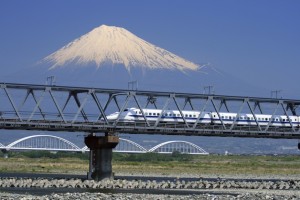I was interviewed for the “Marketplace” program of National Public Radio on the topic of business culture in Japan. As I had studied the Japanese language in college, I was delighted for each and every opportunity to travel to Japan on business and with Japan’s significant earthquake exposures, reinsurance companies, such as my former employer, are very active in that market. My reinsurance experience was beyond the scope of the NPR interview, which focused more on business etiquette and cultural differences, so I will take this opportunity to share a few things I learned about risk management in Japan.
Japan is recognized as a world leader in disaster risk reduction and hosted the United Nations Second (Hyogo, 2005) and Third (Sendai, 2015) World Conferences on Disaster Risk Reduction. Disaster risk reduction is embedded in Japanese policy. You notice that when you see the earthquake safety instructions, posted in English and Japanese, on your hotel room door. The country has extensive drills to prepare emergency responders, carefully planned evacuation and safety procedures and rigorous building codes for structures to withstand a certain amount of seismic activity.
While the UN thematic conferences are beginning to work on inclusive policies for persons with disabilities into disaster risk reduction and emergency planning, Japan began mainstreaming disaster risk reduction work into the needs of the disabled more than two decades ago. I first learned of the findings of Japanese researchers when, after 9-11, the Center for the Independence of the Disabled in New York, a local non-profit organization, published a report “Lessons Learned from the World Trade Center Disaster: Emergency Preparedness for People with Disabilities in New York.” That report referenced the findings of the experiences of disabled persons in Japan following the Kobe earthquake. We learned after 9-11 what the Japanese had learned much earlier: that social isolation is the main factor explaining bad outcomes for disabled persons when disaster strikes. To be inclusive, emergency planning must take into consideration the specific needs of evacuating people with limited physical mobility or other disabilities and consider their longer-term recovery needs, such as medical support.
Finally, Japan has much to teach us about gender issues in disaster risk reduction. Japan has a network to engage women in disaster preparedness activities an area that in the United States, tends to attract relatively few women. And they explicitly consider gender issues (such as, for example, the need for possible lactation facilities in evacuation centers) in emergency planning. I missed the opportunity to participate in the program in Sendai, Japan earlier this year, but look forward to my next trip and would like to start exchanges between Japanese and American small businesses as we have much to learn from one another.
